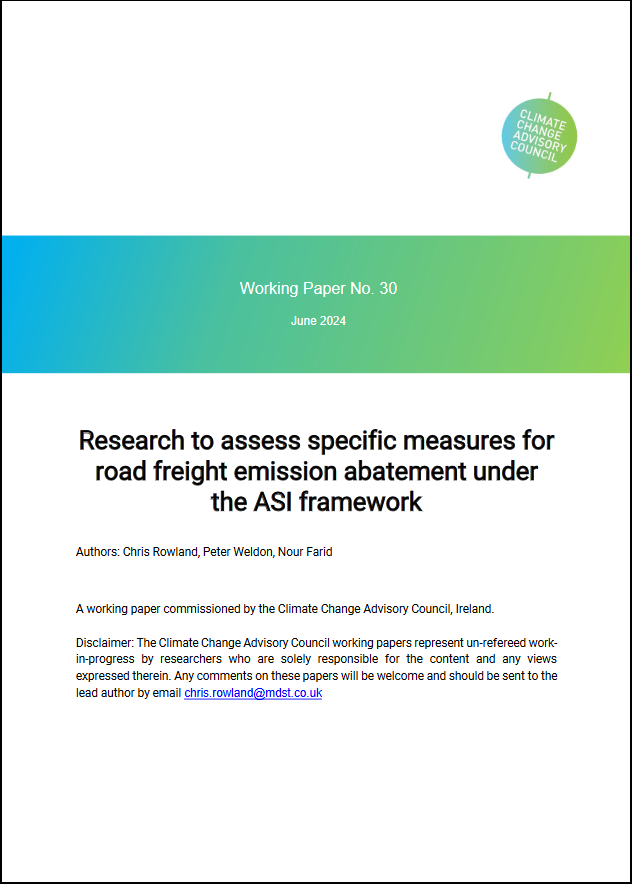
Reducing carbon emissions from HGVs in Ireland

The project
The Climate Change Advisory Council (CCAC) in Ireland commissioned MDS Transmodal, in partnership with SYSTRA, to carry out research on how Ireland could reduce its carbon emissions by 2030 from the road haulage sector. Road haulage is regarded as one of the more ‘difficult to decarbonise’ sectors of the transport industry.
The policy challenge
Freight transport in Ireland is dominated by road freight transport, which handles 99% of all freight moved within the country.
The EU will gradually require the road haulage sector to switch to zero
emission trucks by 2055 by requiring manufacturers of trucks to sell a higher
proportion of zero emission vehicles and by the state being required to provide
a minimum level of refuelling/recharging infrastructure for these
vehicles.
However, this alone is likely to be too slow for the sector to make a significant contribution to Ireland’s target of a 50% reduction in CO2 emissions by 2030 compared to 2018.
Potential policy measures
The research makes suggestions for how a more significant contribution might be made by the freight sector to reducing carbon emissions based on the Avoid-Shift-Improve (ASI) framework which is used by transport planners.
The results of the research suggest it will be difficult to “avoid” freight movements, as this would imply a downturn in economic activity. The main opportunity to secure a “shift” of road freight to an alternative mode of transport for movements within Ireland would be provided by rail, but this mode will struggle to make a meaningful contribution to reducing carbon emissions by 2030.
This means that the focus should be on “improving” road freight movements by incentivising a switch of road haulage from using diesel propulsion to greater use of zero emission trucks through the introduction of a cohesive package of ‘carrot and stick’ measures. This package of policy measures would encourage a rapid take-up of zero emission technology by the market by 2030, particularly for the regional and urban freight segments of the market.
The report
The report has been published by the CCAC and can be found here.
